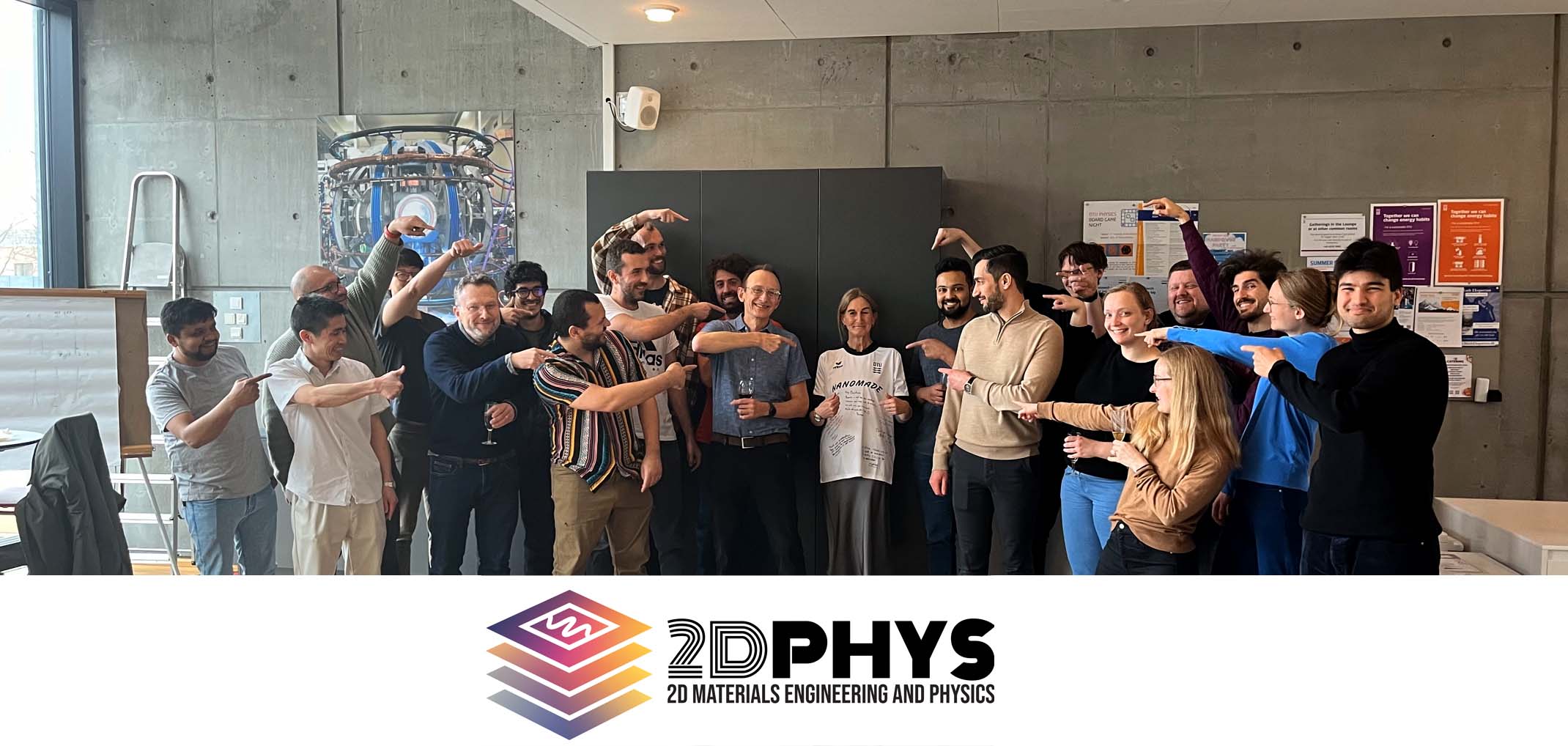About
The section 2DPHYS is a part of Department of Physics, at the Technical University of Denmark.

Address
2DPHYS section is located on the main DTU campus in the city Kongens Lyngby, north of Copenhagen. We are in Building 309, second floor. Our address is:
Section for 2D Materials Engineering and Physics - 2DPHYS
Department of Physics
Technical University of Denmark
Building 309
DK-2800 Kgs. Lyngby
How to find us - How to get to the Technical University of Denmark
Contact
Peter Bøggild Professor, Section leader pbog@dtu.dk
Jannie Nørgaard Project Coordinator jslno@dtu.dk